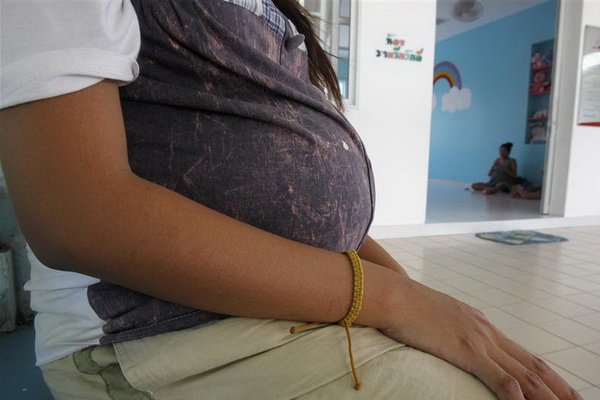As the Senate in Brazil debates reform of abortion laws, the body that regulates medical practice has for the first time backed the legalisation of abortion on request.
The Federal Council of Medicine called for the legalisation of terminations during the first 12 weeks of pregnancy.
Currently, it is allowed only in cases of rape, abnormal brain development or when the mother’s life is at risk.
But wider availability of abortion is opposed by the Roman Catholic church.

Brazilian doctors says terminations should be allowed up to 12 weeks into the pregnancy
Nearly a quarter of a million women a year seek treatment in hospitals after undergoing unsafe procedures, the doctors’ council said.
“It’s important to highlight that it’s not been decided that the (27 regional) Councils of Medicine are favourable to abortion, instead it’s the autonomy of women and doctors,” the president of the FCM, Roberto Luiz D’Avila, wrote on the statement.
‘Violence and death’
Brazilian senators are currently looking into a proposal put together by lawyers and specialists to change the existing criminal code.
The amendment would add other cases in which terminations would not be considered a crime:
- On request up to 12 weeks into the pregnancy
- In cases of foetal anomalies that would make life impossible after birth
- When the pregnancy is the result of insemination or in-vitro fertilisation without consent.
The reforms, however, are meeting strong opposition in the country, especially from the Roman Catholic church.
“What we consider serious in this context is the ‘educational’, or rather, the ‘diseducational’ power that an important body such as the Federal Council of Medicine has – the power to create mentalities,” Bishop Joao Carlos Petrini, from the powerful National Conference of Bishops, told newspaper Folha de Sao Paulo.
The doctors’ council endorsement only strengthens a “mentality that favours violence and death”, he added.
The Brazilian senators recently postponed a deadline to present their findings on the controversial reform.
Abortions are illegal in most cases in the majority of Latin American countries, with the exception of Uruguay, Cuba, Puerto Rico, Guyana and French Guyana.
Fonte: BBC News




Leave A Comment
You must be logged in to post a comment.